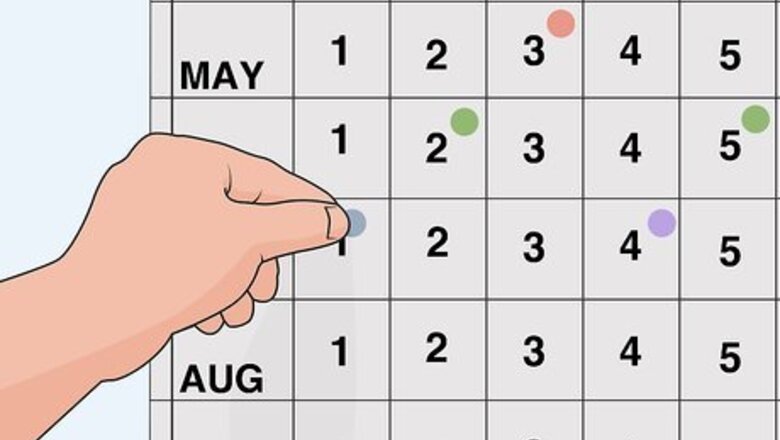
views
Healthy Lifestyle Choices
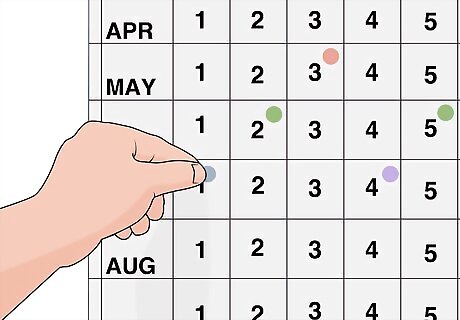
Follow a regular schedule and routine. People with bipolar disorder tend to respond well to schedules, and can feel overwhelmed if unexpected things happen. You might benefit from drawing up and following a schedule, including when you eat, exercise, work, and go to bed. There are many calendar or reminder apps that you can use. Try experimenting with a few and seeing which ones work for you. Using a paper calendar and leaving it in a place you’ll always see is also helpful.

Exercise regularly to keep your mood up. Exercise not only keeps your body healthy, but it also releases endorphins that can boost your mood in depressive periods. Try to get at least 30 minutes of exercise 5-7 days per week for the best results. Aerobic exercises like running or walking are best. You can also incorporate some weight training into your schedule after you get a good baseline of aerobic activity.
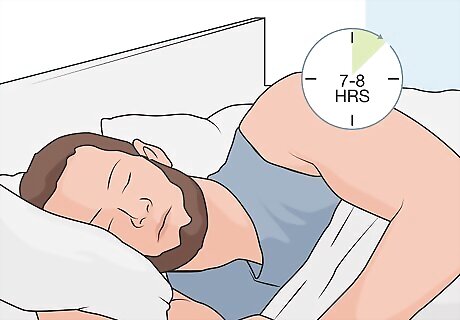
Sleep for 7-8 hours each night. Lack of sleep can crash your mood or even trigger a depressive episode. Do your best to maintain a regular sleep schedule, even on weekends, and get 7-8 hours of sleep each night. If you have trouble with insomnia, try doing relaxing activities like reading or listening to calm music for an hour before bed. Sleeping will probably be more difficult if you’re in a manic period. Try taking a melatonin supplement to help you get to sleep.

Get more sunlight during depressive episodes. Sunlight has a positive effect on your mood. If you’re in a depressive episode, try to spend some more time outside and get as much sunlight as possible. If you have to spend a lot of time indoors or live in an overcast environment, staying in bright lights can have a similar effect.

Reduce stress to keep your mood stable. Stress can trigger both manic and depressive feelings. Do your best to control and reduce your stress levels to avoid dramatic mood swings. Relaxation exercises like meditation, yoga, and deep breathing are good stress-reducing activities.
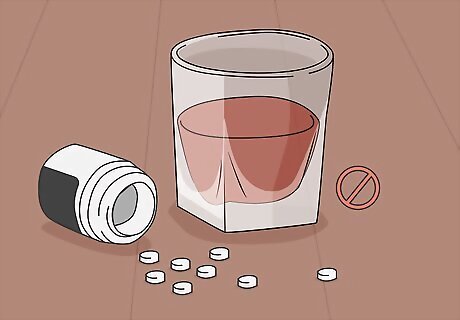
Avoid alcohol and non-prescription drugs. Any mind-altering substances can trigger a manic or depressive episode. It’s best to cut them out of your life altogether. If you’ve been self-medicating with drugs or alcohol, then you may have to contact an addiction specialist to quit.
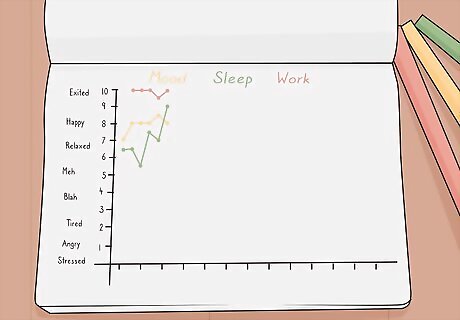
Record your daily condition on a mood chart. Monitoring your moods is a very important part of your treatment. Keep a log and if you’re noticing some dramatic swings in your mood over a few days, then you may be entering a manic or depressive episode. You should contact your therapist in this case.
Positive Dietary Changes

Practice a healthy, balanced diet. A diet rich in fresh fruits, vegetables, and lean proteins has a positive effect on your moods. Try to incorporate as many of these foods into your diet as possible, and cut out processed, sugary, or fatty foods to keep yourself healthy. Besides improving your mental health, following a healthy diet is good for your overall health. Staying healthy is a great mood boost.

Eat your meals on a consistent schedule do avoid sugar crashes. Spacing out your meals too far or skipping them altogether makes your blood sugar crash. This can trigger depression, so always eat on a consistent basis at regular times and avoid skipping meals. You might find it helpful to have a few smaller meals throughout the day rather than 3 large ones. This could keep your blood sugar more consistent.
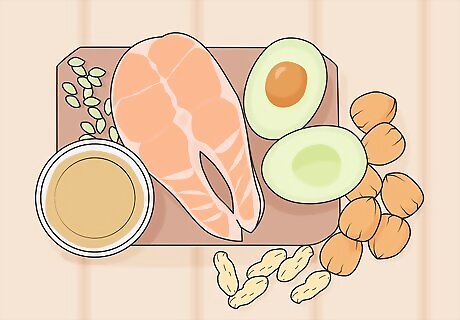
Increase your omega-3 intake. There is some evidence that omega-3s can decrease the number of mood swings you have. Try to eat more oily fish, nuts, flaxseed, and soybeans to boost your omega-3 intake. You can also get more omega-3s from health supplements, but doctors recommend getting as much as possible from your regular diet first.
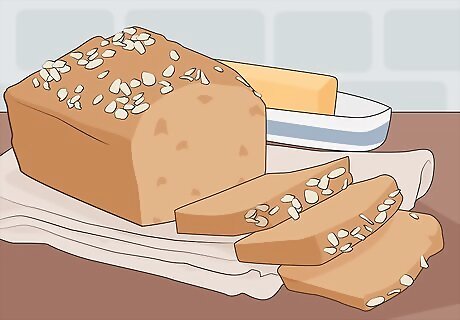
Replace simple carbohydrates with complex ones. Simple carbs like sugars and enriched flours can provide a quick mood spike followed by a crash. Eat more complex carbs from whole grain and wheat products for a more consistent energy release.
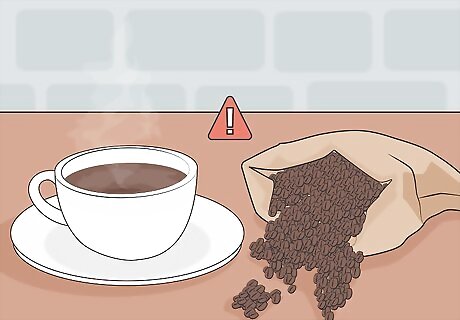
Drink less caffeine to keep your mood stable. Caffeine can boost and crash your mood. This is especially problematic if you’re in a manic mood. It’s best to limit your caffeine intake to an average of 2-4 cups of coffee a day, or less if you’re sensitive to it. Remember that other drinks besides coffee have caffeine in them. Energy drinks, for example, could have 2 or even 3 times the amount of caffeine you’re supposed to have in a day.
Reaching Out for Support

Keep all of your therapy appointments to manage your condition. Psychotherapy, or “talk therapy,” is the most common treatment for bipolar disorder. Be sure to keep all of your appointments and be honest with your counselor about how you’re feeling. This way, they can do their best to help you. Your therapist may also ask you to do things outside of your regular sessions like track your moods or try relaxation techniques. Follow all their directions for successful treatment.

Try cognitive-behavioral therapy to manage your emotions. Cognitive-behavioral therapy (CBT) is a treatment style that trains you to re-frame your responses to emotions and stressors. The aim is making you see things more positively, which can prevent depressive episodes. Your therapist may try this in addition to typical talk therapy.

Talk to your friends and family about your condition. Trying to hide your condition often makes you feel worse. Be open and tell your friends and family about it. This can build a social support network that will get you through tough times.
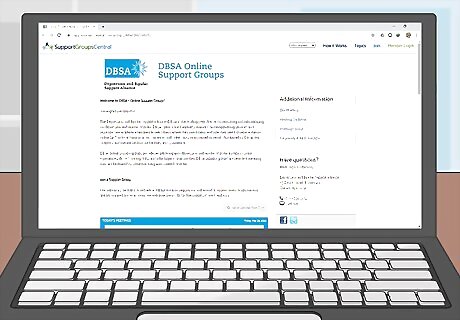
Join a support group to connect with other people. While your friends and family can support you, they don’t know exactly what you’re going through. This is why joining a support group can be helpful. You can connect with other people with bipolar and talk about your experiences with them. Try searching online for a support or focus group in your area. There may also be online communities you can connect with.
Alternative Treatments
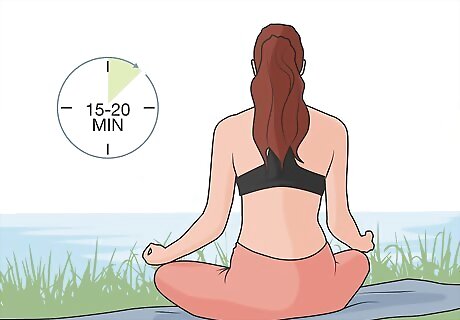
Practice mindfulness meditation every day. Some people with BPD find that daily meditation helps reduce their stress and increase their awareness of their mental condition. Try spending 15-20 minutes each day meditating and see if it helps you. There are guided meditation videos online that can be a big help if you don’t know where to start.
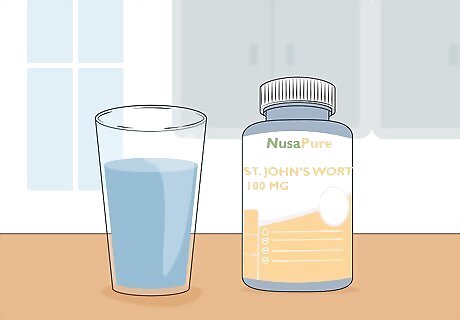
Take St. John’s Wort during depressive episodes. While this supplement shows mixed results, some people do feel better if they take it while feeling depressed. Try it out and see if it works for you. Always ask your doctor before taking this supplement or any other supplements. They could interact with some medications.
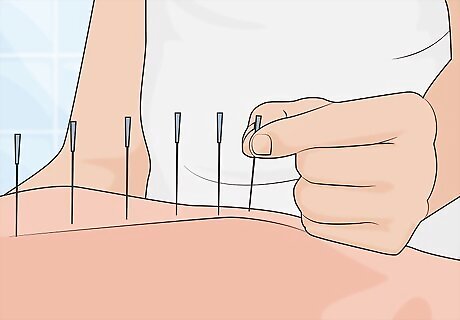
Try acupuncture to relieve tension. Some people report that an acupuncture treatment relaxes them and improves their mental health. Always make sure you visit a licensed and experienced acupuncturist for the safest treatment.
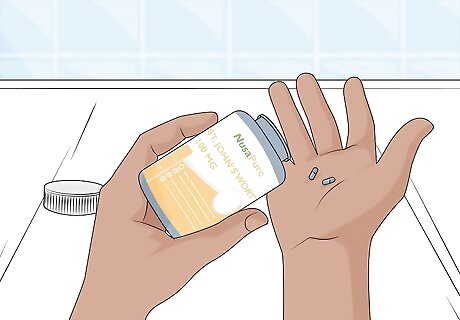
Take probiotics and see if they improve your mental state. One study showed that probiotics did show some success in improving the mood of patients with bipolar disorder. You can take a daily supplement and see if this works for you. You could also eat more probiotic foods like sauerkraut, kimchi, pickles, miso, and Greek yogurt.



















Comments
0 comment